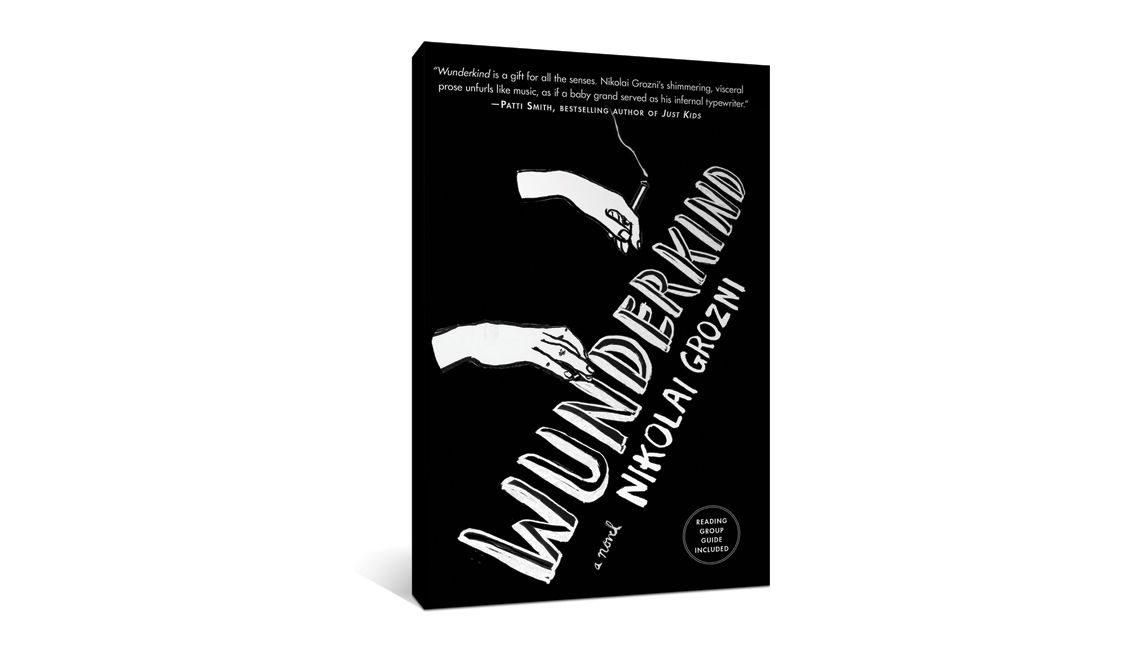
Chopin Against Political Oppression
Wunderkind, written by Bulgarian author Nikolai Grozni, is a novel about the obsession with music and a cry for freedom against authoritarian regimes.
The best school to become a true anti-system is to grow up in a country without freedoms. And Nikolai Grozni, a Bulgarian writer who grew up in Communist Sofia in the late 80s, is well aware of that.
Like the main character of his novel, Konstantin, Nikolai Grozni was a piano student at the National School of Music in Sofia, a sober three-story building decorated with gold trim and cheap chandeliers near the University of Sofia. His memoirs as a teenager in a Music conservatory governed by hard discipline and unique thinking helped him to express his repressed desire for freedom. A desire that Konstantin relieves through music.
With a great talent for music, Konstantin prepares each piano piece as if it was a new life lesson. He introduces us to his piano lessons, at the same time he gives us philosophical lessons with oriental reminiscences. It is no coincidence: when the author ended his musical studies, he moved to India for four years. There, he lived as a Buddhist monk and began to write.
"We were at war with the state, and cigarettes, alcohol and diazepam were our favourite weapons. The communist pigs owned our lives," thinks Konstantin, 15, between piano and piano lesson. "Youth means to feel like a misanthrope seventy year old man and be willing to die at fifteen," he continues.
Konstantin and his classmates, so talented as he is, do not miss any opportunity to demonstrate their rebellious spirit: they smoke, drink, have sex on the sly, make fun of the formalities of the Communist Party. One day, they even stole kalashnikovs to make a bad joke on a teacher. They are all aware that they are super-talented, and have a somewhat arrogant attitude towards teachers, who insist on instilling in them the socialist and patriotic doctrine.
Youth means to feel like a misanthrope seventy year old man and be willing to die at fifteen
"How unfair, how little Marxist and unproletarian means to be born with talent! If we were all born equal, and talent was simply the result of effort, why did some achieve perfection spontaneously, without having to practice anything?," reflects Konstantin, a much mature voice than a real fifteen year old boy.
Wunderkind is also an ode to Chopin, undoubtedly the author's favorite composer. "There was a moment in Chopin's pieces in which he left the pen on the table, approached the window and, handkerchief, explained everything as it was, without decoration or deception. A moment of unexpected honesty that in an instant left the human condition in sight." And follows, in a philosophical tone: "A true moment in music showed that the battles between being and dying, between the corporeal and the eternal, were nothing more than intonation, the melodic expression of a tension."
For Konstantin, learning and practicing a new piano piece is a new challenge that reveals exquisite nuances, while the piano becomes a refuge from reality. At the same time, though, piano is the chain that keeps him attached to reality and that perhaps can take him out of the country.
"Life meant to play Chopin's preludes for yourself; to wait impatiently and to survive the whimsical and prolonged spring of Sofia, when the cherry blossomed, when boys and girls walked hand in hand and made love at night on a bench in the Garden of Physicians or in the back of an empty streetcar without lighting."
Justice only exists in the minds of those who have never truly suffered
In spite of their pranks, their fleeting infatuation, their quarrels and friendships, Konstantin and his friends are trapped in a system that they believe unfair and oppressive. He witnesses that in his country, under the idea that "we are all equal" - talent is not valued. And the mediocre ones, thanks to their contacts with the Party or for being “bootlickers”, manage to get to the top much earlier.
"Justice exists only for the sofa visionaries," says his uncle Iliya. "Justice only exists in the minds of those who have never truly suffered ... Do not waste time chasing ghosts and looking for the origin of evil. You begin to understand when you stop asking questions and you begin to accept things as they are."
Nikolai - unlike Konstantin - omitted for a long time these advices. The author ended up being expelled from the School of Music of Sofia because of his political ideas. A few years have passed since then, but his memory still remembers his music fellows and professors who represent the rigidity of a suffocating system. "Being raised in a society ruled by lies and absolute dogmas sensitizes you against all sorts of manipulation and psychological blackmail," Grozni said in an interview with El País four years ago.
After being expelled from the conservatory, the author spent some time wandering the streets of Sofia until a friend, a composer, convinced him to return to music. Grozni got a scholarship to study at the prestigious Berklee College of Music in Boston, but shortly before finishing the course, he had a kind of existential crisis that prompted him to retreat in the Himalayas to live as a Buddhist monk and study Eastern philosophy. It was then when he began to write.
Today, Nikolai Grozni lives with his wife in the south of France and continues to write. Wunderkind has been translated into Spanish as Jóvenes Talentos (Libros del Asteroide, 2013)










LEAVE A COMMENT:
Join the discussion! Leave a comment.